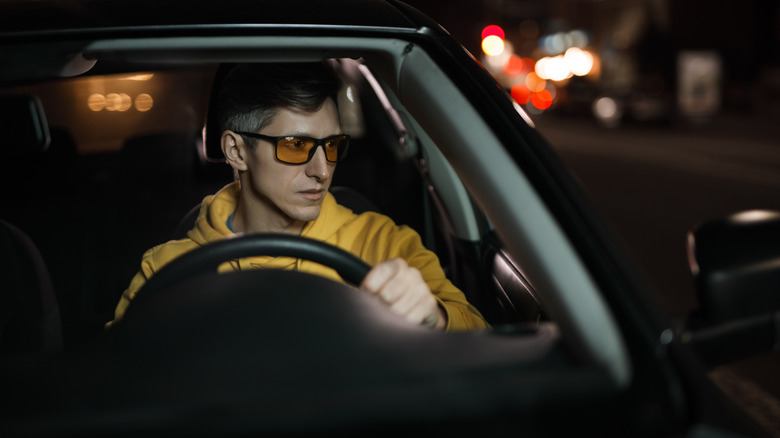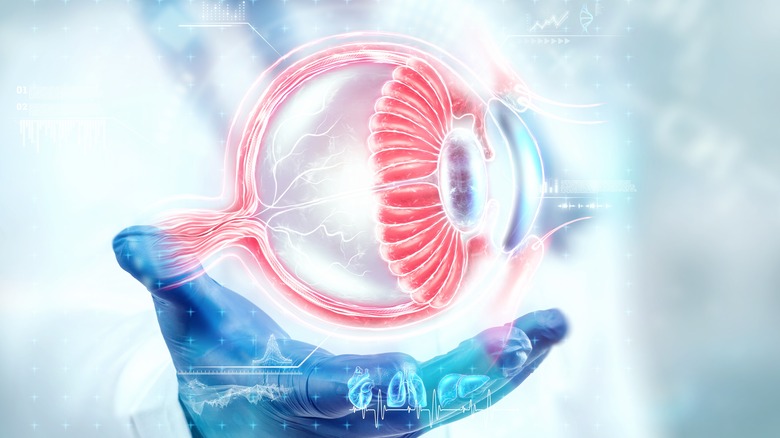If You Can't See Well At Night, It Could Be Something More Serious
Losing your vision at night can be really frustrating and interfere with any evening activities. You may be unable to drive because of your poor visual acuity, increasing the risk of a car accident. In fact, it might even be dangerous to go out for a walk alone without any assistance. All in all, it can put a damper on your routine and may require immediate attention from a professional.
Nighttime blindness — also known as nyctalopia — is not a disease itself, but rather a rare symptom of an underlying ocular issue that may lead to difficulties adjusting your eyes from a luminous surrounding to a poorly lit one, according to the Cleveland Clinic. This symptom might significantly increase the time your eyes need to get accustomed to the darkness. If you have myopia, or nearsightedness, which affects your ability to see far-away objects clearly, you may be at high risk of developing nighttime blindness.
What causes nighttime blindness?
The most common reason for nighttime blindness is a lack of vitamin A. A 2015 article published in Evidence-Based Medicine Consult (EBM Consult) explains that sufficient vitamin A is necessary to produce rhodopsin, an important compound that helps the retina adjust to the darkness and hence, makes it easier to see at night. However, if you have low vitamin A levels, you may experience symptoms of nighttime blindness.
Yet another reason for vision problems at night is glaucoma — a name given to various eye diseases that impact the optic nerve that links your eyes to the brain (via Medical News Today). It leads to pressure developing in the ocular region. If glaucoma isn't managed properly, the damage may last forever, putting your eyes at risk of permanent blindness. It's also possible to have eyesight issues at night because of glaucoma medications, which change the size of the pupil, causing it to constrict and interfere with vision, warns the American Academy of Opthalmology (AAO). Aside from trouble with glaucoma, night blindness can even be a symptom of diabetes.
If you notice problems with your eyesight at night, the best thing to do is visit a doctor. Depending on the cause and severity, they may either recommend changing your glasses, cataract surgery, or vitamin A supplements.


